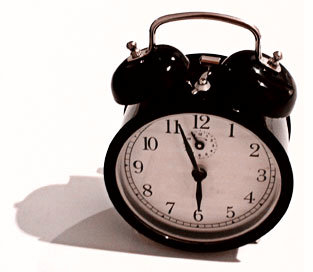In our last post we looked at how spending time on smartphones, tablets, and other screens at night can prevent you from falling asleep (or getting enough sleep). In this post, we'll review some of the ways you can tweak your screen time to get to sleep sooner and be better rested the next day. And, as you'll see, you don't necessarily need to give up your electronic reading time before bed.
As noted in our previous post, computer, phone, and tablet screens can interfere with our sleep patterns because they emit light in the blue wavelength, which our brains associate with daylight, and with wakefulness (certain e-reader screens don't have this problem). What if you could adjust the wavelength to make it more conducive to sleep?
Wednesday, July 22, 2015
Thursday, January 8, 2015
Is Your Late-Night Screen Time Keeping You From Sleeping?
Lots of people don't get enough sleep these days, and there's growing evidence that smartphones and other digital devices may be contributing to the problem.
Part of the trouble is what people are reading or viewing. Consuming content that gets us excited (whether it's a thriller novel or a troubling news story, in print or on a screen) can delay sleep by causing us to lay awake thinking about whatever it is we've read or seen.
But now scientists have found another reason why it may not be a good idea to be on our laptops, smartphones, or tablets right before bedtime: the light the gadget gives off may be keeping us from dozing off, and from feeling well rested the next day. A recent Harvard study has found that people who read before bed using a tablet or other e-reader gadget "felt less sleepy and took longer to fall asleep than when they read a regular printed book, researchers found," according to WebMD.
What's more, these people had more trouble waking up and gaining full alertness than they did after reading an old-fashioned printed book, even though they slept the same amount.
Part of the trouble is what people are reading or viewing. Consuming content that gets us excited (whether it's a thriller novel or a troubling news story, in print or on a screen) can delay sleep by causing us to lay awake thinking about whatever it is we've read or seen.
 |
| Are your digital devices keeping you awake? (Photo: Evil saltine, Wikipedia.) |
But now scientists have found another reason why it may not be a good idea to be on our laptops, smartphones, or tablets right before bedtime: the light the gadget gives off may be keeping us from dozing off, and from feeling well rested the next day. A recent Harvard study has found that people who read before bed using a tablet or other e-reader gadget "felt less sleepy and took longer to fall asleep than when they read a regular printed book, researchers found," according to WebMD.
What's more, these people had more trouble waking up and gaining full alertness than they did after reading an old-fashioned printed book, even though they slept the same amount.
Subscribe to:
Comments (Atom)